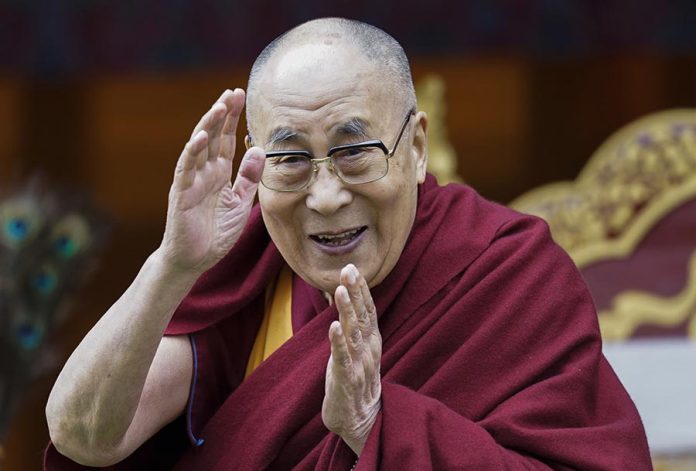BEIJING, 10 Nov: China on Wednesday said it is “open” for talks with Tibetan spiritual leader the Dalai Lama to discuss his “future” but not any issues related to Tibet.
Reports from Tokyo said the Dalai Lama while speaking at an online press conference hosted by the Tokyo Foreign Correspondents Club on Wednesday said, “I prefer to remain here in India, peacefully,” praising the country as a centre of religious harmony.
The 86-year-old Tibetan Buddhist spiritual leader said he has no particular plans to meet with Chinese President Xi Jinping and expressed his wish to visit the Himalayan homeland to meet old friends.
He declined to comment on Jinping’s plans to remain in office for a third five-year term.
“Chinese Communist leaders, they do not understand the variety of different cultures. In reality, too much control will harm people,” said the Dalai Lama, who has been living in India in-exile ever since he fled Tibet in 1959 following China’s takeover of the Himalayan region.
Asked for his reaction to the Dalai Lama’s remarks and whether Beijing will permit him to visit China or Tibet, Chinese Foreign Ministry spokesman Wang Wenbin told a media briefing here that Beijing is open for dialogue with the Tibetan spiritual leader.
“The central government in China, on engaging and discussing issues with the 14th Dalai Lama, the position is consistent and clear. The door for dialogue and engagement is open. I would like to stress that the only matter that can be discussed is the future of the Dalai Lama himself and not to do anything with Tibet,” Wenbin said.
“What the Dalai Lama should do is to stop secessionist activities and take concrete measures to win the trust of the central government and the Chinese people,” he said.
He also lashed out at the Tibetan government-in-exile, saying “it is an out and out separatist political group. It is against China’s constitution and laws, it is an illegal organization. No country in the world recognizes it.”
An official white paper released in May said that any successor to the Dalai Lama should be approved by the Chinese government, ruling out recognition to any heir nominated by him or by his followers.
The Dalai Lama’s succession issue was in the limelight, especially in the last few years, after the US has stepped up campaign that the right relating to the reincarnation of Dalai Lama’s successor should be within the exclusive authority of the Dalai Lama and the Tibetan people.
The Tibetan Policy and Support Act of 2020 (TPSA) passed by the US Congress makes it official United States policy that decisions regarding the reincarnation of the Dalai Lama are exclusively within the authority of the current Dalai Lama, Tibetan Buddhist leaders and the Tibetan people.
China, meanwhile, has tightened its control in Tibet.
Last month, China’s ruling Communist Party appointed Wang Junzheng, sanctioned by the US, Britain, the EU and Canada for his alleged role in the human rights violations against Uygur Muslims in Xinjiang, as the head of the party unit in Tibet.
Junzheng, 58, became China’s highest ranking official to be widely sanctioned over accusations of human rights violations in March, during his tenure as Xinjiang’s deputy party secretary and security chief. (PTI)


